ARTICLE AD BOX

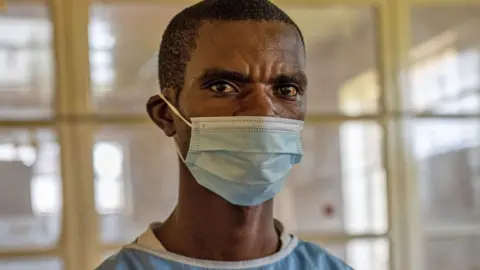 BBC
BBC
Nurse Jackson Murhula says Lwiro clinic is only receiving two or three mpox cases a day at the moment
Medics at the epicentre of the mpox outbreak in eastern Democratic Republic of Congo have told the BBC there has been a notable reduction in new infections since the first batch of vaccines were rolled out last month.
The UN World Health Organization (WHO) confirmed to the BBC that new cases appeared to be "plateauing" in DR Congo, but cautioned that it was too early to tell the impact of vaccinations.
Mpox - formerly known as monkeypox - is a highly contagious disease and is suspected to have killed at least 900 people in DR Congo this year.
The news comes ahead of a meeting at which officials are set to decide if the outbreak should continue to be considered a global public health emergency.
Other public health experts in Africa have warned the disease is still spreading, with 19 countries in the continent reporting infections.
In September the BBC visited a clinic in Lwiro, a rural area about an hour's drive outside the city of Bukavu in DR Congo's eastern province of South Kivu.
The cases there have been linked to a relatively new and more severe strain of mpox known as Clade 1b, which appears to spread more easily and cause more serious disease.
Two months ago, we found the community hospital overwhelmed - with long queues of infected patients, many forced to share beds or mattresses on the floor and doctors struggling to cope with the numbers arriving each day.
"Right now, we can't have more than 60 patients in the hospital," nurse Emmanuel Fikiri, who has been on the front line of the mpox crisis for months, told the BBC this week.
"This is due to the fact that there has been an improvement, there has been vaccination against mpox and there has been support from several partners who have enabled us to take care of the patients," he said.
When Mr Fikiri last spoke to the BBC he could only talk briefly as he rushed off to treat some of the nearly 200 patients who were then crammed into the wards.
But he is now much more optimistic about the situation given that vaccine take up in the community has been high - meaning new infections appear to have dropped dramatically.
Indeed when a BBC producer visited the Lwiro hospital earlier this week we found a much calmer scene: the long queues had gone and there were some empty beds in the children's ward.

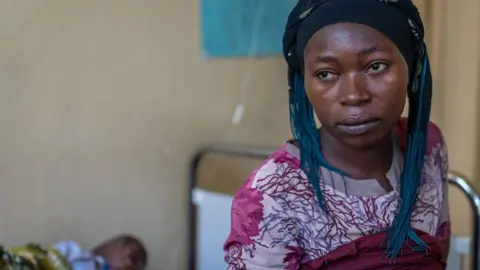
Julienne Mwinja says her three-year-old son was admitted a week ago with mpox symptoms
DR Congo started its mpox vaccination programme in October after taking delivery of 265,000 doses donated by the international community.
More than 50,000 people have been vaccinated so far - with the rollout focused on communities most at risk, including towns and villages in the eastern DR Congo.
But experts have noted that mpox appears to be disproportionately affecting children in DR Congo - and they are not being vaccinated. It was only this week that the WHO authorised a vaccine expected from Japan for children.
"Out of the people affected, about 30% are children," Dr Jean Kaseya, head of the Africa Centres for Disease Control and Prevention (Africa CDC), told the BBC - explaining that children were "also vectors of transmission".
Another nurse at the Lwiro clinic, Jackson Murhula, warned that it was too early to say for sure the disease in the community had been beaten - though he too was happy to see things easing.
"Lately it's started to slow down, because at the beginning we were receiving 10 or 15 new cases a day, but now we're only receiving two or three cases a day," he said.
"We can't confirm that we've totally stabilised the disease, because cases are still coming in, but it's not like before."
Among the children being treated this week is three-year-old Atukuzwe Banissa.
He groans in pain, his eyes shut and face covered in whitish spots left behind by the healing sores.
His mother, 25-year-old Julienne Mwinja, says his symptoms began with teary eyes.
She administered eye drops, but within a day, the little boy developed sores in his mouth, face and body.
"He looked like he'd been scalded by hot water," the mother of three told the BBC.
That is when she brought him to Lwiro hospital where he was admitted for more than a week.
For the medics at Lwrio, it is heartening that people are now tending to come to the clinic as soon as they get symptoms rather than first going to traditional healers.

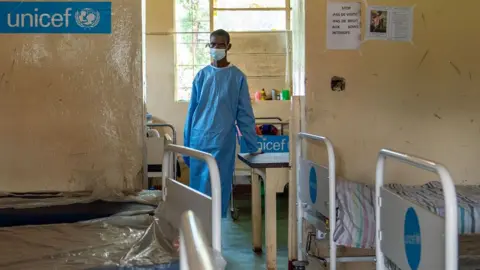
This ward was packed when the BBC visited Lwiro community hospital in September
Dr Samuel Boland, WHO incident manager for mpox, told the BBC that more than 96% of all new mpox cases were currently in DR Congo, Uganda and Rwanda.
While confirming DR Congo had turned a corner, he warned it was too soon to be sure the outbreak was over.
"In the Democratic Republic of the Congo, we've actually seen, to some extent, a plateauing in the number of mpox cases, but collectively, it still is a very significantly affected country globally," he said.
In fact, more than 90% of those who have died of mpox worldwide this year have been in DR Congo.
Although exact figures are unknown as only 77 deaths have been confirmed in the laboratory as there are not many testing centres available in certain areas of the continent.
"And so there remains a very, very strong need to make sure that we continue intervening at pace and at scale, even in places where we see that there may not be an escalation of cases at this moment in time," Dr Boland said.
"Though overall, we might see a shift in the transmission in some places, we do again, still see escalation in others - and so we're not out of the woods yet."
Vaccination programmes have started elsewhere in Africa too, including in Nigeria and DR Congo’s neighbour Rwanda.
Dr Kaseya said the Africa CDC had not seen any notable changes week-on-week over the past month in the DR Congo and warned that it was too early to say the mpox outbreak was under control.
With every effort to conduct vaccinations, reinforce surveillance and laboratory systems "maybe by mid-January to February we’ll start to see a decrease in the cases of infection and deaths".
WHO officials will now assess all the evidence on the pace of spread of the disease before deciding whether to downscale the global alert level.
You may also be interested in:

 Getty Images/BBC
Getty Images/BBC

 1 day ago
3
1 day ago
3

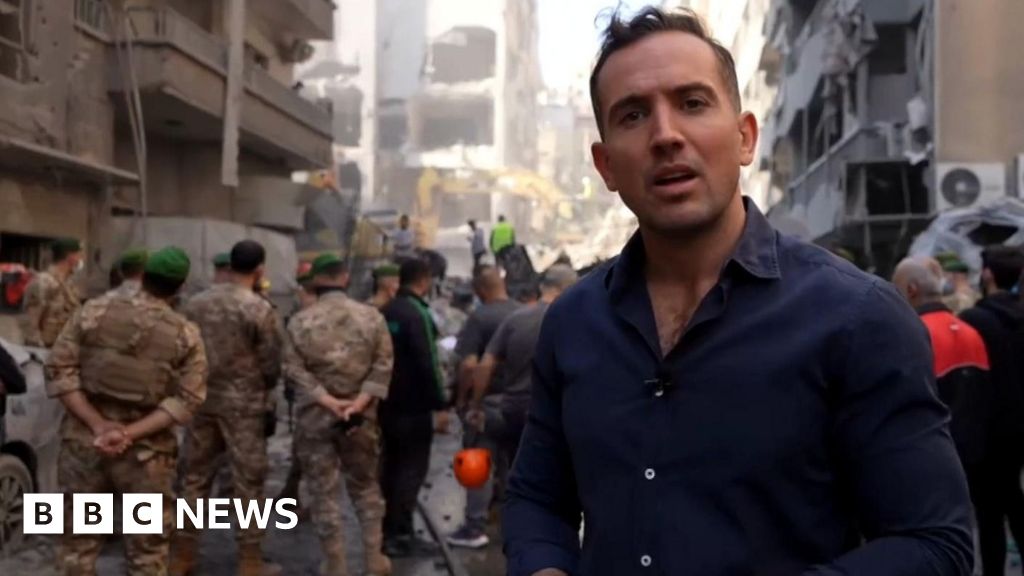
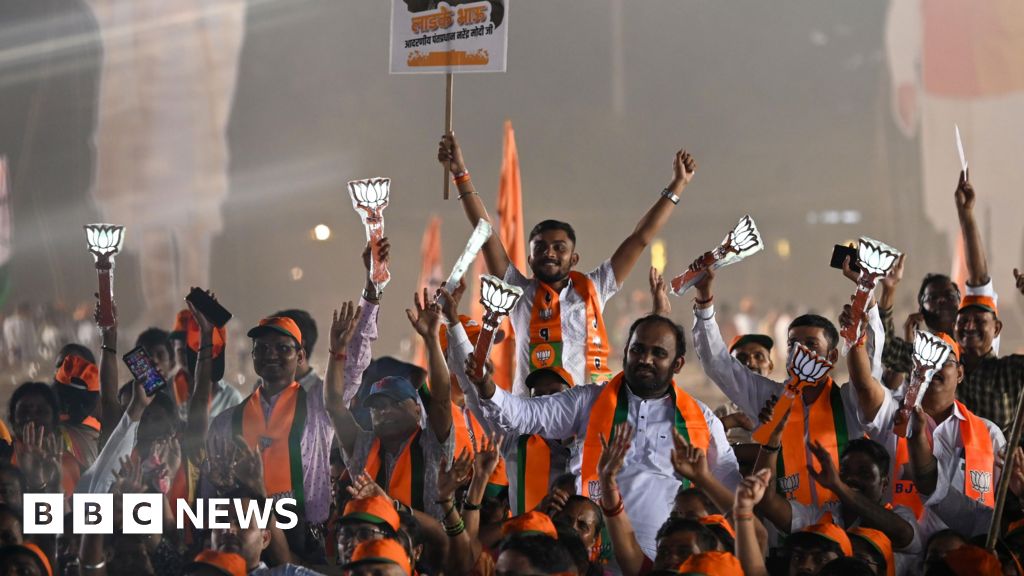





 English (US)
English (US)